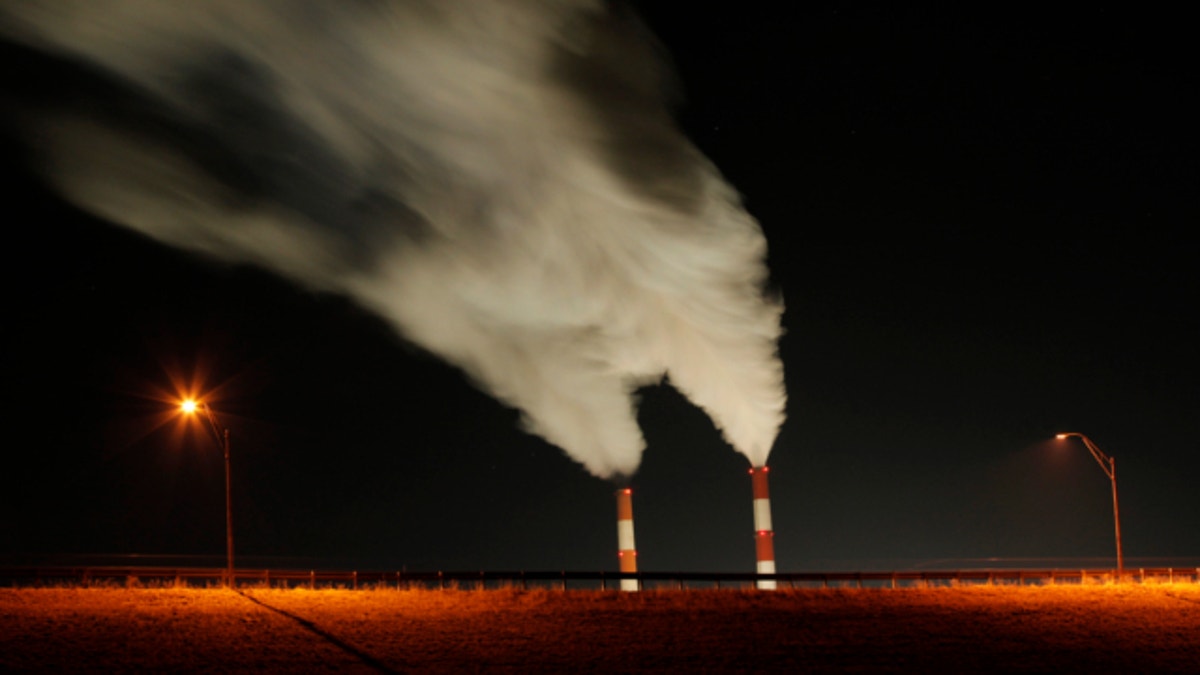
Jan. 19, 2012: This time exposure image smoke rises from the stacks of the La Cygne Generating Station coal-fired power plant in La Cygne, Kan. (AP)
The GOP-led House is expected to vote on a bill Thursday that would curtail the Environmental Protection Agency's effort to limit emissions from new power plants.
Last September, the EPA released a proposed rule that sets emissions caps for new coal-fired power plants and would likely require the industry to use carbon-capture technology, which critics say is too expensive, not commercially available and poses safety risks.
The legislation by Sen. Joe Manchin, D-W.Va., and Rep. Ed Whitfield, R-Ky., would require the agency to set emissions rules for coal-fired power plants that incorporate "commercially feasible" technologies.
The bill would also prevent the EPA from issuing greenhouse gas limits for existing coal power plants until Congress passes a bill setting an effective date, according to The Hill.
The administration has criticized the proposal, arguing it would "stifle progress in reducing carbon pollution by discouraging the adoption of currently available and effective technology, and would limit further development of cutting-edge clean energy technologies," The Hill reported.
Under the EPA rule, future coal plants built would be limited to 1,100 pounds of carbon dioxide emissions per megawatt hour of electricity they generate. The average for coal-fired plants is about 1,700 pounds per megawatt hour at present.
A study released Monday by the conservative think tank The Heritage Foundation found that the EPA's proposed climate regulations would cost the U.S. economy $2.23 trillion between 2015 to 2038 and raise energy prices.
EPA administrator Gina McCarthy met last week with North Dakota Gov. Jack Dalrymple, the state's congressional delegation and industry officials to address recent EPA proposals and regulations for coal-fired power plants, biofuels and corn-based ethanol.
Dalrymple said the proposed rules must be practical and based on technology that is commercially viable and cost effective. He said the state's coal-fired power plants continue to reduce emissions, and that "unattainable standards would undermine the nation's energy security and could lead to higher utility rates for customers and lost jobs."
McCarthy told reporters that coal will continue to play a role in the nation's energy future but challenges remain to reduce greenhouse gasses.
"The climate is changing and we have to work on this together," she said.
The Associated Press contributed to this report.




